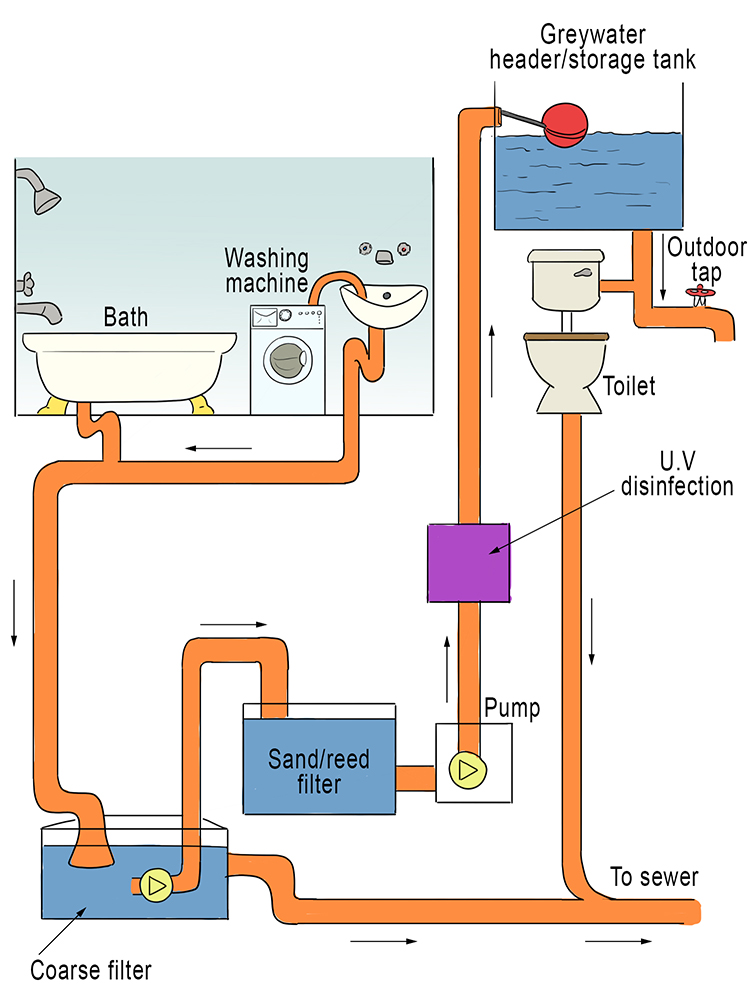Greywater – waste water from non-toilet plumbing fixtures such as showers, basins and taps. Grey water comes out of taps
To remember the meaning of the term Greywater, use the following mnemonic:
The greyhound loved tap dancing (grey is associated with taps).

Greywater – Comes out of taps
NOTE: Greywater is different from blackwater, which comes out of toilets, not taps. Blackwater contains faecal matter (poo) and/or urine (wee).

Treated greywater can be used for toilet flushing or for watering plants in the garden.
Greywater is used water from bathrooms, sinks, showers, tubs, and washing machines. It is not water that contains faeces or urine, either from the toilet or from washing nappies.
Greywater may contain traces of dirt, food, grease, hair, and certain household cleaning products.
While it may look “dirty,” it is a safe and even beneficial source of irrigation water in a garden.
If greywater is released into streams, rivers or lakes its nutrients become pollutants, but to plants, they are valuable fertiliser.
Reusing greywater keeps it out of the sewer or septic system, eliminating the slightest chance that it will find its way into local water bodies, either by accident or in flooding or other emergency situations.
For an effective greywater system, it is essential to use “plant friendly” products in washing machines and other appliances – those without lots of salt, boron (a trace mineral) or chlorine bleach. The build-up of salts and boron in the soil can damage plants.




